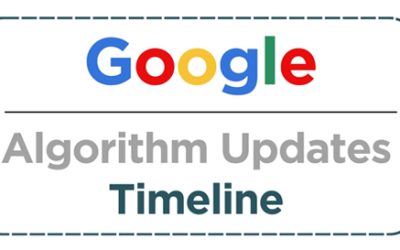Google recently announced the rolling out of their March 2024 core update, which includes algorithm changes to improve the quality of search results and spam policy updates to reduce spam. This update is designed to ensure that the search engine giant presents the most helpful information on the web to searchers, and reduces unoriginal content in search results. Do you know that the Google helpful content update is also a part of the core update now.
Google admits that the March 2024 core update is a more complex update compared to their other usual core updates, involving changes to multiple core systems. It also marks an evolution in how Google identifies the helpfulness of content. Spam policies are being revised to exclude low-quality content from Search, such as expired websites repurposed as spam repositories and instances of obituary spam.
The March 2024 Core Update
Google updates their core ranking systems to show more helpful results using a variety of innovative signals and approaches. Based on their ongoing efforts to combat low-quality content, the March 2024 core update would refine the ranking systems to better identify and devalue unoriginal and unhelpful webpages. This includes content primarily designed for search engines, rather than human users.
By further refining the understanding of user experience and content quality, this update aims to significantly reduce the exposure of sites containing low-quality content and reward high-quality, helpful sites.
With the March 2024 core update, Google anticipates a combined 40% decrease in low-quality and unoriginal content.
What is Google’s “helpful content system”?
It’s a system launched in 2022 to enhance the helpfulness of search results, but Google’s methods have evolved.
How can I check if my content is helpful?
Visit our help page for self-assessment questions on creating reliable, people-first content.
Do Google’s ranking systems work on a page or site-wide basis?
Primarily on the page level, with some site-wide signals considered for assessing content helpfulness.
Will removing unhelpful content improve my ranking?
While Google’s systems focus on individual pages, having too much unhelpful content may impact overall site performance. Removing it can contribute to better rankings.
Do I have to wait for a core update to see ranking improvements?
Ranking changes can occur anytime due to constant updates. There is no set timeline; take control of your content now for potential improvements.
New Spam Policies
To maintain the quality of search results, Google actively updates their spam policies. Three new policies were announced to address emerging spam tactics such as the following:
- Expired domain abuse – This abuse type involves purchasing and repurposing expired domain names to manipulate search rankings, typically by hosting low-value content. This intentional practice uses the domain’s past reputation to achieve better search results with content that may provide little value to users. Now, if expired domains are purchased and repurposed with the objective of enhancing the ranking of low-quality content, it is identified as spam.
- Scaled content abuse – Scaled content abuse involves generating numerous pages primarily to manipulate search rankings, often resulting in large amounts of unoriginal, low-value content. Google’s updated policy extends their stance on automatically-generated content, addressing scaled content abuse regardless of whether it is produced through automation, human efforts, or a combination of both. The aim is to emphasize that producing content at scale with the intent of manipulating search rankings is considered abusive, irrespective of the methods employed, be it automation or human effort.
- Site reputation abuse – Site reputation abuse occurs when third-party pages are published independently, aiming to manipulate search rankings by exploiting the first-party site’s ranking signals. The new policy distinguishes between acceptable third-party content, like native advertising for regular readers, and abusive content, providing examples on the spam policies page. The implementation is scheduled to be on May 5, 2024, allowing site owners time to comply.
Google encourages creators to review all their spam policies to ensure compliance. Websites violating these policies may experience reduced visibility or complete removal from search results. If affected by a spam penalty, website owners will receive notification through their Search Console and can request re-evaluation. Google’s policies cover common forms of spam such as – cloaking, doorways, hacked content, hidden text or links, keyword stuffing, link spam, machine-generated traffic, malware and malicious behaviors, scraped content, user-generated spam, and more.
With core and spam updates, Google assures that it will continue to work hard at keeping low-quality content on Search to low levels, and showing more information created to help people. Businesses can consider partnering with an experienced digital marketing services company that is up to date with the changing Google algorithms and updates.




